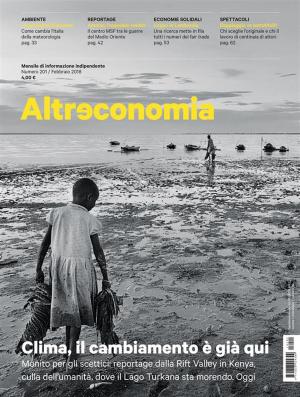| Author: | Jean Muhire | ISBN: | 1230002043296 |
| Publisher: | Jean muhire | Publication: | December 11, 2017 |
| Imprint: | Language: | English |
| Author: | Jean Muhire |
| ISBN: | 1230002043296 |
| Publisher: | Jean muhire |
| Publication: | December 11, 2017 |
| Imprint: | |
| Language: | English |
Multinational corporations are key players in the new world order of the collapse of the Soviet Union and the fall of the Berlin Wall in 1989. Over the last 20 years, multinational corporations have gained economic, financial and economic power. The globalization of the markets and capital of which they are the first beneficiaries has allowed them to accentuate the concentration of capital and the productive apparatus at their disposal and to achieve the creation of oligopolistic situations. Privatizations promoted by the World Bank and the International Monetary Fund, and the World Trade Organization are accelerating the rise of Transnational Corporations (TNCs). Their activities cover all sectors. They can choose their places of production, supply, exploitation and sale.
Large multinational units, groups of firms organized into networks dominated by a parent company, are increasing in the 20th and 21st century. According to the United Nations Conference on Trade and Development (UNCTAD), 70,000 parent companies exist today and their turnover would exceed the budget of countries like Chile, Nigeria and Pakistan. The finance ministry's management in France indicates that the first 100 multinational units account for 15% of jobs worldwide, 12% of foreign assets, 12% of sales.
Multinationals are in a position to influence the economy of the weaker states (especially when their turnover exceeds the GNP of the states in question. Their transnational nature, their economic and legal versatility, their enormous economic and financial resources constitute not only a advantage but also a problem, as these features also constitute important obstacles to attempts to exercise legal and social control over multinational corporations. Multinational companies assume no responsibility for violations of labor law and the protection of of the environment in the countries or they relocate their products. Contrary, thanks to bilateral or multilateral treaties .
They manage not only to get rid of all the civil damage they produce. But they also get guarantees from the state, which welcomes them against possible loss of profits due to reforms favorable to labor and / or environmental legislation. This effectively constitutes an obstacle to progressive human rights reforms.
Multinational corporations are key players in the new world order of the collapse of the Soviet Union and the fall of the Berlin Wall in 1989. Over the last 20 years, multinational corporations have gained economic, financial and economic power. The globalization of the markets and capital of which they are the first beneficiaries has allowed them to accentuate the concentration of capital and the productive apparatus at their disposal and to achieve the creation of oligopolistic situations. Privatizations promoted by the World Bank and the International Monetary Fund, and the World Trade Organization are accelerating the rise of Transnational Corporations (TNCs). Their activities cover all sectors. They can choose their places of production, supply, exploitation and sale.
Large multinational units, groups of firms organized into networks dominated by a parent company, are increasing in the 20th and 21st century. According to the United Nations Conference on Trade and Development (UNCTAD), 70,000 parent companies exist today and their turnover would exceed the budget of countries like Chile, Nigeria and Pakistan. The finance ministry's management in France indicates that the first 100 multinational units account for 15% of jobs worldwide, 12% of foreign assets, 12% of sales.
Multinationals are in a position to influence the economy of the weaker states (especially when their turnover exceeds the GNP of the states in question. Their transnational nature, their economic and legal versatility, their enormous economic and financial resources constitute not only a advantage but also a problem, as these features also constitute important obstacles to attempts to exercise legal and social control over multinational corporations. Multinational companies assume no responsibility for violations of labor law and the protection of of the environment in the countries or they relocate their products. Contrary, thanks to bilateral or multilateral treaties .
They manage not only to get rid of all the civil damage they produce. But they also get guarantees from the state, which welcomes them against possible loss of profits due to reforms favorable to labor and / or environmental legislation. This effectively constitutes an obstacle to progressive human rights reforms.















